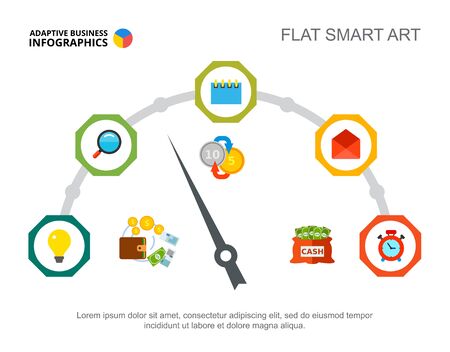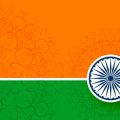Introduction to Women Entrepreneurship in India
India is witnessing a remarkable transformation in its entrepreneurial ecosystem, with women entrepreneurs emerging as powerful change-makers across sectors. From metropolitan cities like Mumbai and Bengaluru to tier-2 towns such as Indore and Coimbatore, women are breaking barriers and establishing successful ventures. Despite this encouraging trend, women entrepreneurs often face unique challenges including limited access to credit, societal expectations, lack of collateral, and lower financial literacy. These obstacles can make it difficult for them to scale their businesses or even secure the initial funding required to get started. In response to these challenges, Indian banks and financial institutions have begun recognising the need for customised solutions and dedicated loan schemes that cater specifically to women business owners. By offering special discounts, concessional interest rates, and simplified documentation processes, these tailored banking solutions are helping bridge the financial gap and empower more Indian women to turn their entrepreneurial dreams into reality.
Government-Backed Bank Loan Schemes for Women
India has witnessed a remarkable rise in women entrepreneurship, and the government has played a pivotal role in empowering women through specially designed bank loan schemes. These flagship schemes not only offer easy access to finance but also provide subsidized interest rates, reduced collateral requirements, and flexible repayment options. Lets take a closer look at some of the most impactful government-backed initiatives tailored for women entrepreneurs.
Mudra Yojana for Women
The Pradhan Mantri Mudra Yojana (PMMY) is one of the most popular schemes for aspiring women entrepreneurs in India. Under this scheme, women can avail loans under three categories – Shishu, Kishore, and Tarun – based on their business needs. The scheme supports micro and small enterprises, especially those run by women from rural and semi-urban backgrounds.
| Category | Loan Amount | Key Features |
|---|---|---|
| Shishu | Up to ₹50,000 | No collateral, minimal documentation |
| Kishore | ₹50,001 – ₹5 lakh | For growing businesses, flexible tenure |
| Tarun | ₹5 lakh – ₹10 lakh | Larger expansion projects, competitive interest rates |
Stand Up India Scheme
The Stand Up India Scheme is designed specifically to promote entrepreneurship among women and SC/ST communities. It provides bank loans between ₹10 lakh and ₹1 crore for setting up new enterprises in manufacturing, services, or trading sectors. This scheme ensures that every bank branch facilitates at least one woman entrepreneur and offers handholding support throughout the process.
- Eligibility: Women above 18 years establishing greenfield projects
- Loan Amount: ₹10 lakh to ₹1 crore
- Repayment: Up to 7 years with moratorium period included
Mahila Udyam Nidhi Scheme
This unique scheme is offered by SIDBI (Small Industries Development Bank of India) to encourage women-led MSMEs (Micro, Small & Medium Enterprises). The Mahila Udyam Nidhi provides financial assistance for setting up new small-scale ventures or upgrading existing units. Repayment period ranges up to 10 years including a moratorium period.
- Max Loan Amount: Up to ₹10 lakh
- Purpose: Setting up or modernization of small businesses owned by women
Comparison of Key Government Schemes for Women Entrepreneurs
| Scheme Name | Loan Range | Main Beneficiaries |
|---|---|---|
| Mudra Yojana | Up to ₹10 lakh | Micro & Small Enterprises (Women) |
| Stand Up India | ₹10 lakh – ₹1 crore | Women & SC/ST Entrepreneurs (New Businesses) |
| Mahila Udyam Nidhi | Up to ₹10 lakh | Women-led MSMEs (New/Existing Units) |
Cultural Relevance and In-Practice Benefits
These schemes have become game changers in the Indian ecosystem by encouraging traditional homemakers to step into entrepreneurial roles and supporting young women graduates from Tier-II and Tier-III cities. With banks like SBI, Canara Bank, and PNB actively promoting these offerings, more Indian women are turning their dreams into reality with robust financial backing.

3. Special Discounted Loans Offered by Leading Indian Banks
When it comes to empowering women entrepreneurs, some of India’s most reputable banks have introduced exclusive loan schemes with attractive discounts and benefits tailored specifically for women-owned businesses. These offers are designed not only to make finance more accessible but also to encourage more women to step into entrepreneurship.
SBI’s Stree Shakti Package
The State Bank of India (SBI) stands out with its Stree Shakti Package, a flagship scheme that provides special interest rate concessions exclusively for women entrepreneurs. Women who own at least 51% of the business and are registered in the SME segment can avail an interest rate concession of 0.05% on loans above ₹2 lakh. Additionally, SBI often waives part of the processing fee for eligible applicants, making it easier for women to start or expand their enterprises without worrying about excessive upfront costs.
Canara Bank’s Mahila Udyam Scheme
Canara Bank is another major player offering the Mahila Udyam Scheme, which is tailored for micro, small, and medium enterprises owned by women. This scheme offers concessional interest rates, typically around 0.25% lower than standard rates. What makes Canara Bank’s approach unique is their focus on providing hassle-free documentation processes and quick loan disbursal, which is a big plus for first-time entrepreneurs who may find traditional banking procedures intimidating.
Punjab National Bank’s Mahila Udyami Scheme
Punjab National Bank (PNB) has rolled out the Mahila Udyami Scheme that provides credit facilities with reduced processing fees and competitive interest rates for women entrepreneurs. PNB also extends additional benefits such as relaxed collateral requirements under certain government-backed guarantee schemes, helping women access larger funds with minimal paperwork.
Additional Unique Benefits
Besides preferential interest rates and discounted fees, these leading Indian banks often offer value-added services such as free financial literacy workshops, dedicated relationship managers, and networking opportunities through tie-ups with women entrepreneur forums. Such holistic support ensures that Indian women not only get financial backing but also ongoing guidance throughout their entrepreneurial journey.
Conclusion
The special discounted loans and exclusive benefits provided by major banks like SBI, Canara Bank, and PNB play a crucial role in bridging the financial gap for women entrepreneurs across India. By availing these schemes, women-led enterprises can enjoy reduced borrowing costs and dedicated support, paving the way for greater participation of women in India’s dynamic business landscape.
4. Eligibility Criteria and Required Documentation
When applying for special bank loan schemes and discounts tailored for women entrepreneurs in India, it is crucial to understand the specific eligibility criteria and documentation requirements set by Indian banks. These conditions ensure that only deserving candidates receive the benefits of such schemes, promoting genuine women-led business growth across the country.
Who Can Apply?
Generally, these loan schemes are open to Indian women who are starting or currently running micro, small, or medium enterprises (MSMEs) in sectors ranging from manufacturing and trading to services. Most banks require the applicant to have a significant ownership stake—typically at least 51%—in the business. Additionally, some schemes target first-time entrepreneurs, while others may cater to established businesswomen seeking expansion or diversification.
Qualifications Needed
| Criteria | Description |
|---|---|
| Ownership | Minimum 51% owned and managed by a woman/women |
| Business Type | Registered MSME in manufacturing, services, or trading sectors |
| Age Limit | Typically between 18-65 years (varies by scheme) |
| CIBIL Score | A good credit history is usually preferred but not always mandatory for all schemes |
| Location | Business must be registered and operational in India |
| Other Conditions | No prior default on loans; compliance with RBI guidelines; sometimes specific to rural/urban areas or minority communities |
Required Documentation
Banks in India typically ask for a standard set of documents to process applications for womens business loans. Ensuring all paperwork is in order can speed up approval and disbursal processes.
| Document Type | Examples/Details |
|---|---|
| KYC Documents (Identity & Address Proof) | Aadhaar Card, PAN Card, Voter ID, Passport, Driving License, Utility Bills |
| Business Registration Proof | Udyam Registration Certificate, GST Certificate, Shop Establishment Certificate, Partnership Deed/Company Incorporation Document (if applicable) |
| Ownership Proof | Shareholding pattern or self-declaration stating woman as majority owner/director/partner/proprietor |
| Financial Statements | Bank statements (6–12 months), balance sheets, profit & loss account (audited if available) |
| Project Report/Business Plan | Duly signed project report explaining business purpose and fund utilisation plan |
| Photographs | Recent passport-size photographs of applicant(s) |
| Caste/Community Certificate (if applicable) | If applying under SC/ST/OBC/minority-focused schemes |
| Other Documents as per Bank Policy | NOC from landlord (for rented premises), trade license, etc. |
Please Note:
The exact eligibility requirements and list of documents may vary depending on the chosen scheme and lending institution. It is always advisable to consult with your preferred bank’s relationship manager or visit their official website for the most updated information before applying.
5. Step-by-Step Application Process
Understanding the Indian Banking Landscape
Women entrepreneurs seeking special loan schemes and discounts in India must first identify banks that actively support women-led businesses. Major public sector banks like State Bank of India, Punjab National Bank, and private players such as ICICI and HDFC offer dedicated products for women. It is advisable to check each bank’s website or visit a nearby branch for updated information on available schemes and eligibility criteria.
Preparing Required Documentation
Before approaching the bank, gather all necessary documents. Typically, you will need:
- Proof of identity (Aadhaar Card, PAN Card, Passport)
- Business registration certificate (GST, Udyam Registration for MSMEs)
- Address proof (Utility bill, Voter ID)
- Bank account statement (last 6-12 months)
- Project report or business plan outlining objectives and expected financials
Filling Out the Loan Application
Most banks provide both online and offline application options. If you choose to apply online, log in to the bank’s official website and navigate to the loans section for women entrepreneurs. Fill in your personal details, business information, required loan amount, and upload scanned copies of your documents.
If applying offline, collect the loan application form from your preferred branch. Fill it out carefully and attach all supporting documents as per the checklist provided by the bank staff.
Submitting Your Application
Once your application is complete, submit it online or hand it over at the bank branch. Request an acknowledgment receipt for future reference. It is common in India for banks to conduct an initial discussion with applicants—be prepared to answer questions regarding your business model and revenue projections.
Tracking Progress and Follow-Up
Banks may take 7-15 working days to process your loan request. During this period, stay proactive by regularly contacting the branch manager or designated relationship officer for updates. Many Indian banks now send SMS/email alerts at different stages of approval; however, a personal visit can sometimes help expedite the process.
Receiving Approval and Disbursement
If approved, you will be notified about further formalities such as signing agreements or providing collateral/security if required under the scheme. Once formalities are complete, funds are usually credited directly into your business account.
This hands-on approach ensures that women entrepreneurs can confidently navigate the Indian banking system while making use of special schemes designed just for them.
6. Success Stories and Real-World Examples
Empowering Women Across India: Inspiring Journeys
The positive impact of special bank loan schemes and discounts for women entrepreneurs in India can be best understood through real-life success stories. These journeys not only highlight the financial benefits but also showcase how cultural nuances and determination play a pivotal role in building thriving businesses.
Case Study 1: Seema’s Boutique in Jaipur
Seema, a resident of Jaipur, availed herself of the State Bank of India’s Stree Shakti Package Scheme. With an interest rate concession and no collateral requirement, she expanded her small tailoring business into a flourishing boutique employing ten local women. The support from the bank scheme gave her the confidence to break traditional barriers and establish her own brand in a competitive market.
Case Study 2: Priya’s Organic Farm in Tamil Nadu
Priya, from a rural village in Tamil Nadu, utilized the Mudra Yojana for Women to start an organic farming venture. The simplified documentation process and flexible repayment terms respected her family commitments and seasonal agricultural cycles—an important cultural factor in rural India. Today, she supplies organic produce to nearby towns and provides training to other aspiring women farmers.
Case Study 3: Nandini’s Tech Startup in Bengaluru
Nandini, an IT professional turned entrepreneur, benefited from ICICI Bank’s Advantage Woman Account, which offered preferential processing fees on business loans. This support helped her set up a tech company with a focus on hiring female graduates. Her startup now collaborates with educational institutions to empower young women with digital skills—bridging both gender and skill gaps in the industry.
Practical Insights and Cultural Learnings
These examples reveal common themes: leveraging government and private sector schemes, community support, and overcoming societal expectations. Many Indian women entrepreneurs prefer banks that offer approachable staff who understand their unique challenges—such as balancing family responsibilities or operating from home-based units. Additionally, word-of-mouth within women’s self-help groups (SHGs) often influences loan decisions, underlining the importance of trust and community in Indian culture.
The successes of Seema, Priya, and Nandini demonstrate that with tailored financial products and culturally sensitive support systems, Indian women can transform their entrepreneurial dreams into reality—fostering economic independence for themselves and future generations.

